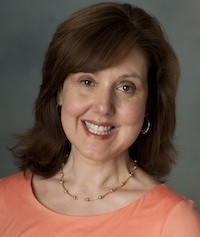For a significant period in its on-air history, All My Children was a satirical show that focused on social issues.
Though I began watching All My Children as a child — long before I ever had any thought of ever becoming a sociologist. Now that I’m older, I realize that AMC explored issues that are of keen interest to academics in my field. In addition to the con man Langley Wallingford, who tried to convince everyone in AMCs fictional town of Pine Valley that he was a professor of sociology, the program focused on many sociological themes in an accurate and intelligent manner.
From the very beginning, AMC was rife with social class tensions. The town’s matriarch, Pheobe Tyler, who saw herself as the pillar of the Pine Valley Community, belonged to an organization called the Daughter’s of Fine Lineage – a pun on the real-life Daughter’s of the American Revolution. Many a story line revolved around Phoebe and other upper crust Pine Valley residents who became dismayed when their children fell in love with individuals they thought were beneath them. Pheobe was upset when her grandson became romantically involved with former prostitute Donna Beck and the uppity Ruth Nelson became perturbed when her son Greg fell in love with the working class Jenny Gardner.
I’ll never forget the episode, (circa 1983) when the working class Opal Gardner and the upper middle class Ruth Martin, were arguing over the proper way to raise Tad, Ruth’s delinquent teenaged son.
“Put that boy to work.” Opal said. “Make him go out and earn his own living.” Ruth responded to her by saying, “I guess we have a different set of values …. he’s got quite enough homework to keep him completely occupied.” In this way, AMC’s writers accurately depicted two different cultural strategies for rearing children.
During this same time period, AMC also touched upon race relations. Opal Gardner was unhappy that her daughter Jenny was palling around with an African American boy named Jessie Hubbard. She made her disapproval known, and on more than one episode asked her daughter, “Are you still hanging around with that black kid?”
Other sociological themes pertained to gender. Like many American women, Erica Kane was torn between two competing cultural rules for women – a conflict that became especially pronounced in the 1970’s when the women’s liberation movement was in full swing. While on a continual quest for the perfect male, she was also in the process of building her modeling career. She had a legal abortion 1973 because she felt that she wasn’t ready to have a child at that point in her working life, and later in the series, hid the fact that she was taking birth control pills from another one of her husbands. Erica did not seem to be consciously aware of this internal conflict, but as the story progressed into the 1980s her Boyfriend Mike Roy called her out on this aspect of her character. In an episode that aired on September 2, 1983 he said to her, “Your only real love is your career. It always has been.”
Moving forward in time AMC continued to explore cutting edge social issues as Erica’s beloved daughter Bianca came out as a Lesbian.
But in its later years, AMC seemed to lose much of its socially relevant satirical bite. The unrealistic situations that were integrated into some of the plot lines– like the one where Erica’s seemingly aborted fetus was actually implanted into the infertile wife of the doctor who performed the procedure — detracted from the show’s quality.
I sincerely hope that now that AMC is being revamped for the inter-net, the writers will return it to the smart and funny soap that depicted the lives of multidimensional set of characters who were attempting to cope with the kinds of real-life social issues that are being studied by real-life sociologists.
Kristyan Kouri teaches sociology and gender & women’s studies at Cal State University, Northridge
